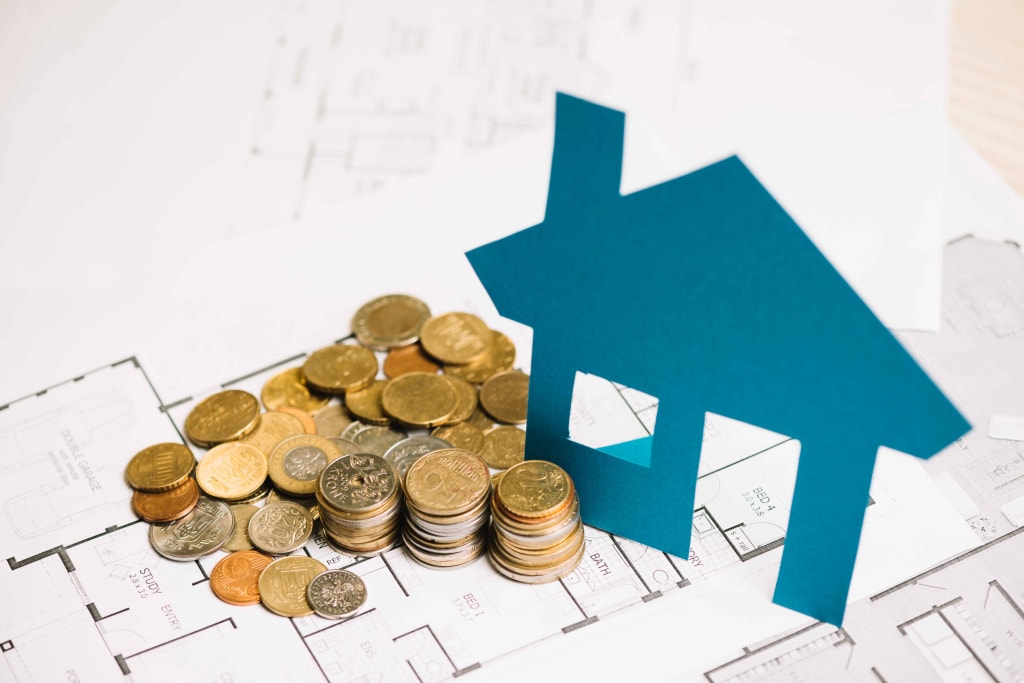Navigating Home Refinancing: A Comprehensive Guide to Making Informed Financial Decisions
From Lowering Rates to Accessing Equity: Everything You Need to Know About Refinancing Your Home

Introduction to Home Refinancing
Refinancing your home can feel like navigating a maze, but it doesn't have to be daunting. Let’s break it down together. So, what is home refinancing? Essentially, it’s the process of replacing your current mortgage with a new one, usually to secure better terms. Understanding the ins and outs of this process is crucial, as it can lead to significant financial benefits.
Benefits of Refinancing a Home
Lower Interest Rates
One of the primary reasons homeowners consider refinancing is to snag a lower interest rate. This can translate to substantial savings over the life of your loan. Imagine paying less every month and saving thousands in interest!
Reduced Monthly Payments
Refinancing can also help reduce your monthly payments. This is particularly beneficial if you're looking to free up some cash for other expenses or investments. It's like giving your budget a little breathing room.
Access to Home Equity
Need some extra cash? A cash-out refinance allows you to tap into your home’s equity, which can be used for renovations, paying off high-interest debt, or other financial needs.
Shortening Loan Terms
Want to pay off your mortgage faster? Refinancing to a shorter term can help you do just that. While your monthly payments might be higher, you’ll pay less in interest over time and own your home outright sooner.
Types of Home Refinancing
Rate-and-Term Refinance
This is the most common type of refinancing. It involves changing the interest rate, the term of the loan, or both. It’s all about securing better terms.
Cash-Out Refinance
If you need a lump sum of money, this option lets you borrow more than what you owe on your home and take the difference in cash. It’s a great way to use your home’s equity to meet other financial needs.
Cash-In Refinance
Got some extra cash lying around? A cash-in refinance lets you pay down a portion of your mortgage to reduce your loan balance and possibly get a better rate.
Streamline Refinance
For those with government-backed loans like FHA or VA mortgages, streamline refinancing offers a simplified process with less paperwork and faster approval.
When to Consider Refinancing
Market Conditions
Timing is everything. Consider refinancing when interest rates are lower than your current mortgage rate. Keeping an eye on market trends can help you decide the perfect moment to refinance.
Personal Financial Situation
Your financial health plays a significant role. If your credit score has improved or your debt-to-income ratio has decreased, you might qualify for better terms.
Loan Term Considerations
Think about your long-term goals. Are you looking to lower your payments now, or do you want to pay off your home sooner? Your goals will influence the type of refinance you choose.
Steps to Refinance Your Home
Evaluate Your Financial Health
Start by assessing your finances. Check your credit score, review your debt, and ensure your financial situation supports refinancing.
Shop for Lenders
Don’t settle for the first offer. Shop around, compare rates, and look for a lender that offers the best terms for your situation.
Submit Your Application
Once you’ve chosen a lender, it’s time to apply. Be prepared to provide detailed financial information.
Home Appraisal
The lender will require an appraisal to determine your home’s current value. This step is crucial as it affects the terms of your new loan.
Closing the Loan
After approval, you’ll close on the new loan. This involves signing the final documents and paying any associated closing costs.
Costs Involved in Refinancing
Closing Costs
Refinancing comes with closing costs, including origination fees, title insurance, and escrow charges. These can add up, so factor them into your decision.
Prepayment Penalties
Some mortgages have prepayment penalties. Check if your current loan has one, as it can affect the cost-effectiveness of refinancing.
Application Fees
Lenders may charge fees for processing your application. These can vary, so ask about them upfront.
Appraisal Fees
You’ll likely need to pay for a new appraisal. This fee is typically non-negotiable and essential for the refinancing process.
Impact of Credit Score on Refinancing
Understanding Credit Scores
Your credit score is a key factor in refinancing. It affects the interest rate and terms you’ll be offered.
How Credit Scores Affect Interest Rates
A higher credit score can secure you a lower interest rate, leading to significant savings. Conversely, a lower score might mean higher rates.
Tips to Improve Your Credit Score
To boost your credit score, pay bills on time, reduce debt, and correct any errors on your credit report. Small steps can lead to big improvements.
Documents Needed for Refinancing
Proof of Income
Lenders will require proof of income, such as pay stubs or tax returns, to ensure you can afford the new loan.
Credit Report
A current credit report is necessary to assess your creditworthiness.
Property Appraisal
An updated appraisal determines your home’s value and influences the loan amount you can qualify for.
Debt Information
Lenders will need details about your existing debts to evaluate your debt-to-income ratio.
Common Mistakes to Avoid
Not Shopping Around
Don’t just go with the first lender you find. Comparing offers from multiple lenders can save you money.
Ignoring the Terms of the New Loan
Pay close attention to the terms of the new loan. Make sure they align with your financial goals.
Overlooking Closing Costs
Factor in closing costs when calculating the benefits of refinancing. They can add up and affect the overall savings.
Choosing the Right LenderComparing Lenders
Look at interest rates, fees, and customer reviews to compare lenders. The right choice can make a big difference.
Reading Reviews
Customer reviews can provide insights into the lender’s reliability and service quality.
Asking Questions
Don’t hesitate to ask potential lenders about their fees, terms, and the refinancing process. The more you know, the better decision you can make.
Refinancing for Different Situations
Refinancing for Lower Rates
If your goal is to lower your interest rate, focus on lenders offering the best rates and terms.
Refinancing for Cash-Out
For those needing extra cash, look for lenders that offer favorable terms for cash-out refinancing.
Refinancing for a Shorter Term
If you want to pay off your mortgage faster, find lenders with competitive rates for shorter loan terms.
How Refinancing Affects Your Financial Goals
Long-Term Savings
Refinancing can lead to substantial long-term savings, especially if you secure a lower interest rate.
Paying Off Debt
Using a cash-out refinance to pay off high-interest debt can improve your financial health.
Funding Major Expenses
Accessing your home’s equity through refinancing can provide funds for major expenses like home renovations or education costs.
Tax Implications of Refinancing
Deductibility of Mortgage Interest
Mortgage interest may still be deductible, but it’s important to understand how refinancing affects this deduction.
Impact on Property Taxes
Refinancing might affect your property taxes, especially if a new appraisal significantly changes your home’s value.
Tax Benefits of Cash-Out Refinance
There can be tax benefits associated with cash-out refinancing, but it’s wise to consult a tax professional to understand your specific situation.
Refinancing and Home Value
How Home Value Affects Refinancing Options
Your home’s value directly impacts your refinancing options. Higher value can lead to better terms.
Improving Home Value Before Refinancing
Consider making improvements to increase your home’s value before refinancing. This can help you qualify for better terms.
Conclusion
Refinancing a home can be a smart financial move, offering benefits like lower interest rates, reduced monthly payments, and access to home equity. However, it's important to understand the process, consider the costs, and choose the right lender to achieve your financial goals.
About the Creator
Enjoyed the story? Support the Creator.
Subscribe for free to receive all their stories in your feed. You could also pledge your support or give them a one-off tip, letting them know you appreciate their work.






Comments (1)
Interesting and delicious content, keep posting more.